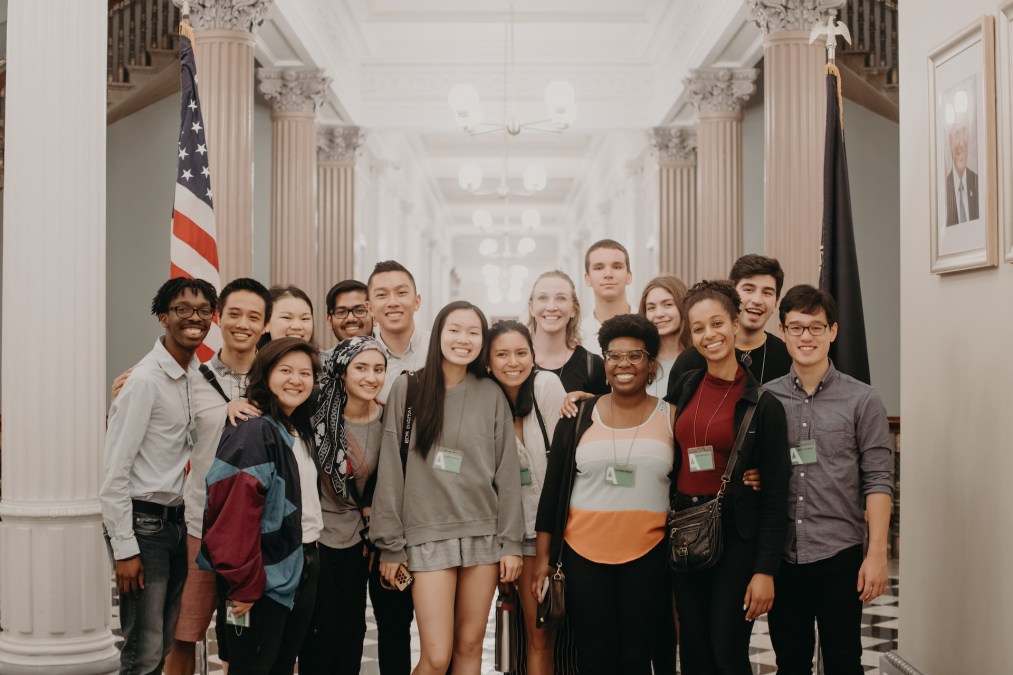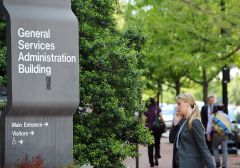Here’s what year two of Coding it Forward’s Civic Digital Fellowship looks like

Back for a second summer, the Coding it Forward Civic Digital Fellowship is flush with more students working at more agencies and with more support from the federal government’s “innovation family.”
The program — founded and run by students itself — is also looking to become better established within the civic-tech ecosystem. To that end, program participants and leaders say they are receiving strong mentorship from other parts of the community, including the U.S. Digital Service, former members of the Presidential Innovation Fellows program and more.
The Civic Digital Fellowship, the first edition of which consisted entirely of 14 fellows working at the Census Bureau, is now much more robust — all in all there are 36 fellows in D.C. working at six agencies for 10 weeks this summer. In addition to Census, fellows are working with the Department of State, Department of Health and Human Services, Department of Veterans Affairs, General Services Administration and International Trade Administration.
The three dozen students — 30 undergrads and six from graduate programs — are a rarified bunch, too. The program got about 900 applications from students at 175 colleges around the country, Coding it Forward cofounder — and rising junior at Harvard — Chris Kuang said.
How has the upstart fellowship grown so fast? One key — as is often the case for a program like this — is relationships.
The program has been championed by Nick Sinai, formerly a deputy U.S. chief technology officer under President Obama; Jeff Meisel, chief marketing officer at the Census Bureau and former Presidential Innovation Fellow; Seamus Kraft, founder of the OpenGov Foundation; and more.
In their first four weeks these 2018 fellows have been able to sit in on a meeting at USDS, get lunch with Matt Lira at the White House Office of American Innovation and throw some strikes in the White House bowling alley.
The Coding it Forward founders are lucky to have these relationships, and they know it. Kuang, who took part in his own fellowship during the inaugural cohort last summer, says building the program wasn’t about creating something for himself. “So many of my peers were looking for [this],” Kuang said. “I had the crack of an open door that we were able to run through. [Now] we’re thinking about how we as Coding it Forward can keep that door open for other people and keep pulling more and more students in.”
The existence of the program, he said, is “really a testament” to the mentorship and support he and his cofounders have received over the years.
Another crucial element to success is finding a strong advocate for the program within the host agency. “We can do all the programming and site visits and professional development that we want, but at the end of the day the fellows are working 40 hours a week at their agency with these teams, with these really dedicated, passionate civil servants that are making this happen,” Kuang said.
“We’re extremely grateful to the program managers, to the supervisors, to the managers that we have,” he added.
Last but certainly not least, the success of the program relies on students being interested in the opportunity — Kuang and his cofounders are grateful to the 50 students thus far who have “taken a leap of faith” on a program without, frankly, too much of a track record.
“We’re just constantly inspired by the energy and the interest that so many other students have,” Kuang said.






